John Petrucci on why recording guitar is like beard trimming
As the Dream Theater guitarist welcomes just his second solo album into the world, we caught up with the hirsute 53-year-old to talk tone, technique and his grooming regimen.

When confronted with reality that there will be no live music in 2020 the vast majority of artists immediately began tapping into their creative energy in order to fill that huge void, and Dream Theater’s guiding force and guitarist for over 35 years was no different. John Petrucci already had plans to begin recording his second solo album in the spring of 2020, but in a stroke of luck his calendar opened up earlier than expected, meaning those plans were stepped up and he immediately headed into DT headquarters with engineer Jimmy T to continue writing the tunes that would eventually form his second solo album Terminal Velocity.
During the pre-production period, both John and Jimmy handled bass and drum-programming, but when it came to laying the final parts down, they sought out a couple of virtuosic cohorts, namely bassist Dave LaRue (Dixie Dregs, Flying Colors) who featured on John’s debut solo album, and a little-known drummer called Mike Portnoy.
The new material is exactly what you would expect from Dream Theater’s bearded titan: monstrous heavy riffing, and a cavalcade of dexterity and technique. But we also find more than one or two surprises, including a slick classic rock inspired track, and an emotively raw-sounding blues instrumental. It feels rather like the veteran has thrown down a gauntlet for the current crop of technically proficient young prog guitarists, for even after 30 years since he arrived on the scene, John Petrucci continues to set the standards of tone and technique, and his latest album delivers some of the most blisteringly fluid playing committed to record.
We spoke to John ahead of the album’s release to find out all about the writing and recording of Terminal Velocity, and his interesting personnel choices…
Was there a part of you that was apprehensive about reuniting with Mike Portnoy, purely because of the avalanche of ‘Will Mike be rejoining Dream Theater?’ questions?
“I knew that would come with the territory and it’s just a matter of accepting that as a possible outcome. But that really hasn’t happened as far as I can see, at least not a lot. People’s response has been really positive; they’re happy to see Mike and I doing something musically together. Of course, it was in the back on my mind when asking Mike, but if this pandemic has taught any of us anything it’s that life’s too short, right?”
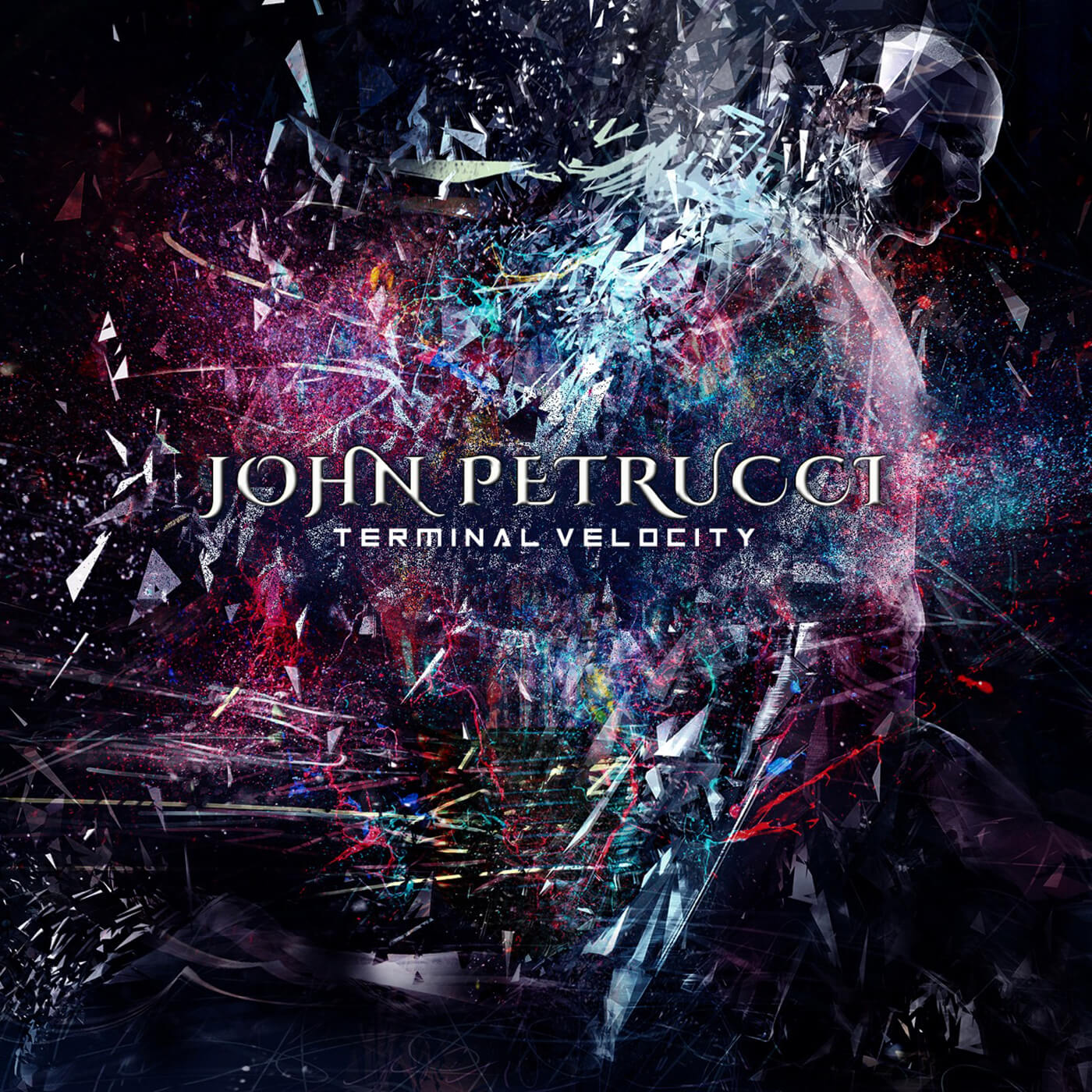
Did you have an idea of what you wanted the drum parts to look like, or was it a cast of just handing it over for him to do his thing?
“When I talked to Mike about playing on it, I sent him the material. He immediately said, ‘Do you picture me playing exactly what you programmed here?’ And I was like, ‘No, I don’t want to tie your hands, if anything I want you to do your thing’. But what the drum programming did is that it did set up the general feels of where I was picturing it going – whether something was half time, double time, whatever it might be – he interpreted from there. If there was anything that was very specific like musically that had to be locked in: like for example the song The Oddfather and also Temple Of Circadia. There’s some set ups where the kick drum pattern is very locked into the guitar pattern, and those were things I needed Mike to learn specifically and do. But as the song is going and grooving along and all the drum fills, that’s all him doing his thing.”
Out Of The Blue has a very raw, dry tone; did you consciously seek out this sound to make the playing a little bit more exposed and vulnerable?
“Definitely! Especially on a song like that, there’s so much more room, there’s so much space, that I wanted it to have that kind of bluesy sound. The [Mesa/Boogie] Mark Series amps are famous for that kind of tone, and that big fat kind of bluesy sound. You might associate that amp with me and my sort of prog metal style and Dream Theater, but it can do so much more. I just rolled off the gain on the amp and got a real fat sound.”
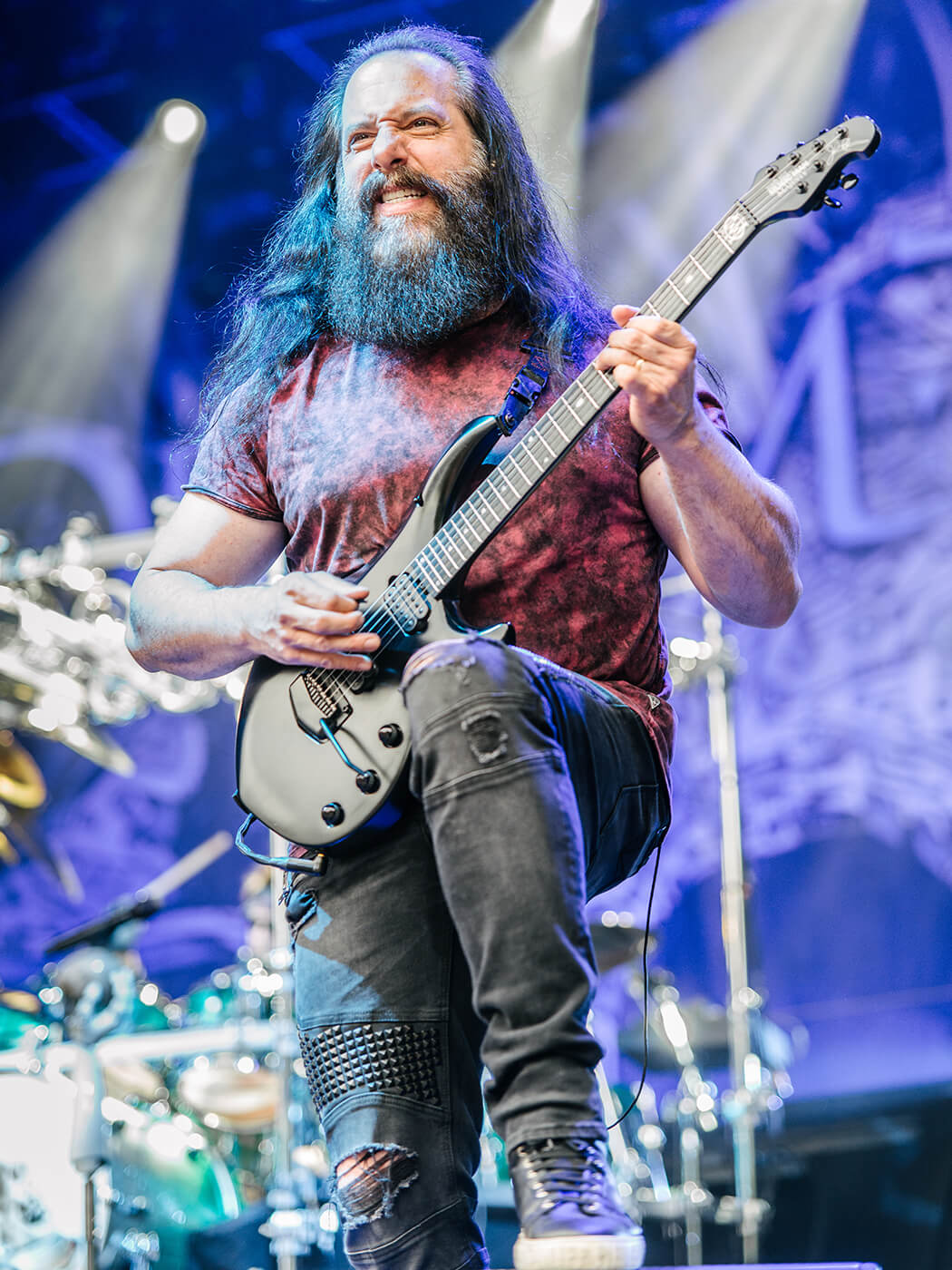
Did you use your Music Man on the album? Were you ever tempted to use or Strat or something similar?
“I’m not tempted because I have the best guitars on the planet, and they happen to have my name on it! That entire album is my Ernie Ball Music Man signature Majesty guitar.”
Back when the last Dream Theater album came out you told us that your solos aren’t improvised, did you take the same approach with Terminal Velocity?
“That type of playing is too crafted with certain notes are falling exactly when they need to fall [to be improvised]. I’m purposely not improvising. It’s like a painting, you’re trying to get the exact colours right and blend. I’m purposely trying to make the notes interesting and slow down my thought process, so that I can make something cool musically and interesting. Some of those ideas they do stem from like seeds. With Terminal Velocity the opening motif was a song seed that I had collected over the years. The way it happens, I’ll be playing guitar and all of a sudden, I’ll start to stumble upon something that sounds cool. So, I’ll just record it on my phone and put it aside.
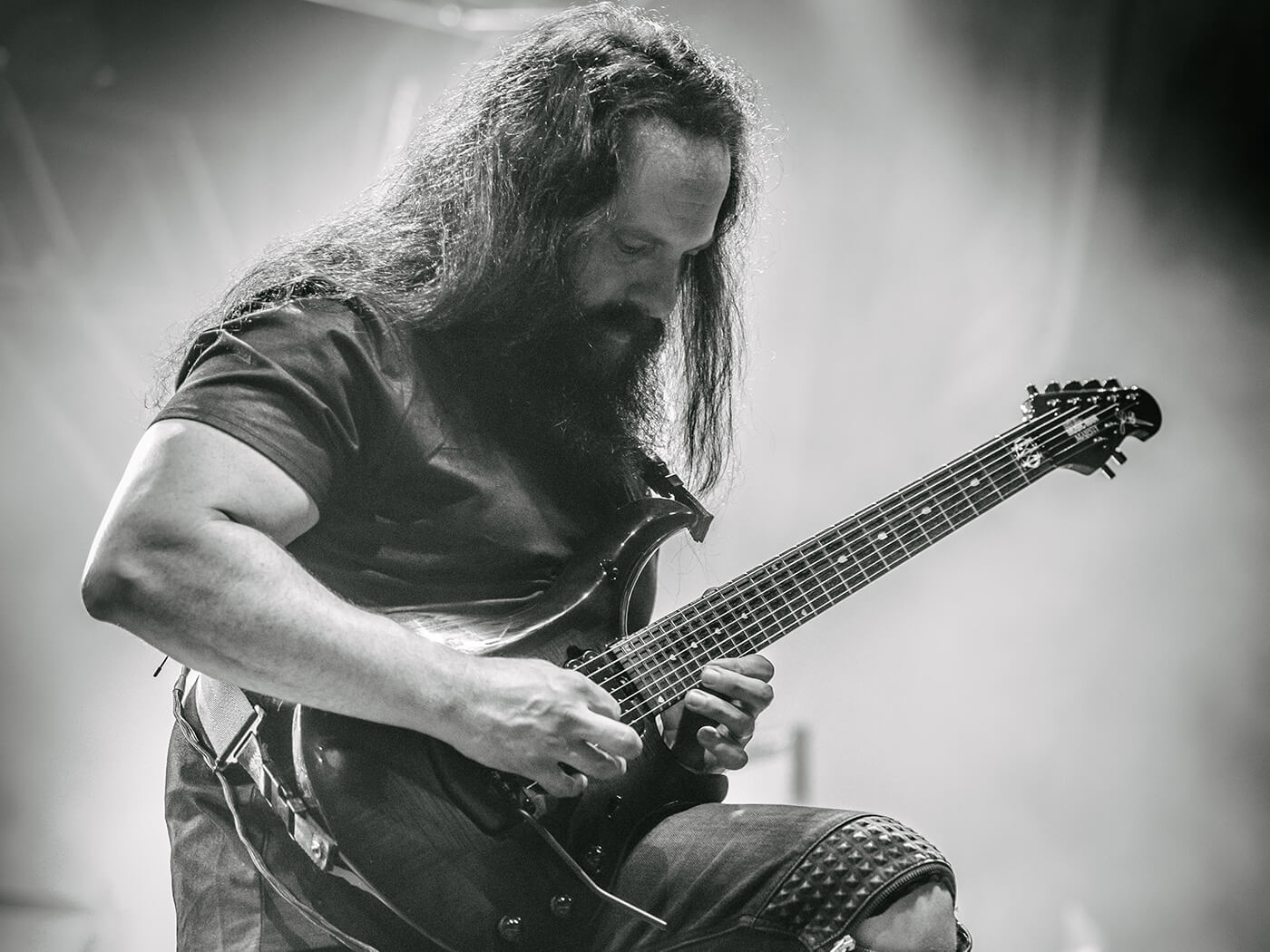
When you do find yourself improvising, do you have a tendency to go back rerecord it?
“Yes I do, I do but a lot of times I’ll end up using the initial recording because for whatever reason it happened organically and it’s better. There’s something to overthinking where you could actually take away from the feeling of it, so you’ve got to be careful with that. You have to kind of know when to stop. It’s like trimming the beard, if you try to get it exactly symmetrical you might just go in a little too much and next thing you know you’ve got to shave the whole thing off!”
What do you think artistically you get from your solo albums that you don’t get from Dream Theater?
“Artistically, there’s more room for me as a guitar player to do my thing because I’m not sharing the space with vocals, or keyboards. I’m also able to have a little bit more fun and leeway with stylistic elements like Snake In My Boot, Out Of The Blue, or Happy Song – they wouldn’t be Dream Theater songs but they’re fun sides of guitar playing for me.
“Dream Theater is a bit more like serious and a little more epic and has a thing which is fun in its own way. If you put in a style that doesn’t necessarily go in there, then immediately it just doesn’t feel right. I think with instrumental music, and in this case guitar instrumental music, I’m able to approach things in a way where I can do different styles that you wouldn’t necessarily hear me play in Dream Theater.”
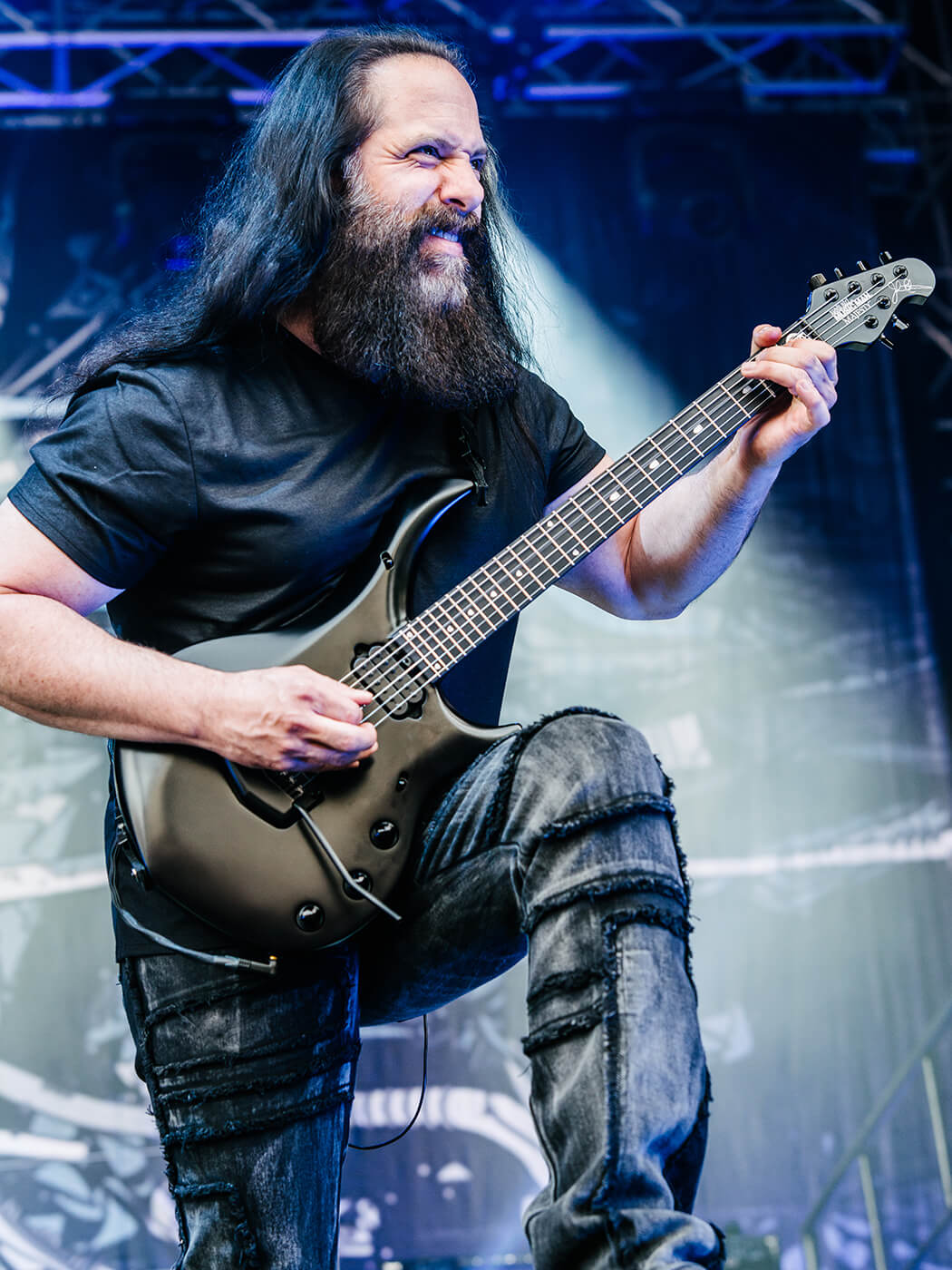
Is it an ongoing quest to capture the perfect tone or are you basically looking for the best tone for a particular album?
“I would say that it has been an ongoing quest for a long time, and I feel like the quest has kind of reached its pinnacle. It’s partially because I’m able to develop an amp and get it exactly to my specifications, and then to be able to use that to play live with and record; same with the guitars.”
For some this is your best tone to date: oodles of gain but without sacrificing dynamics – one of the most difficult guitar tones to achieve
“You’re a hundred percent right, you couldn’t have said that better! That is the challenge, because too much gain the sound gets to compressed and then you lose your dynamic range. The new Majesty’s and the new signature pickups are slightly less output. I’ve experimented with this because you can push too hard with that and then you lose the dynamics that you’re talking about, but you can also go too vintage-y and then you don’t have the sustain. The Boogies have a ton of gain, so you got to watch. The dynamics are so, so important to the way a melody is expressed.”
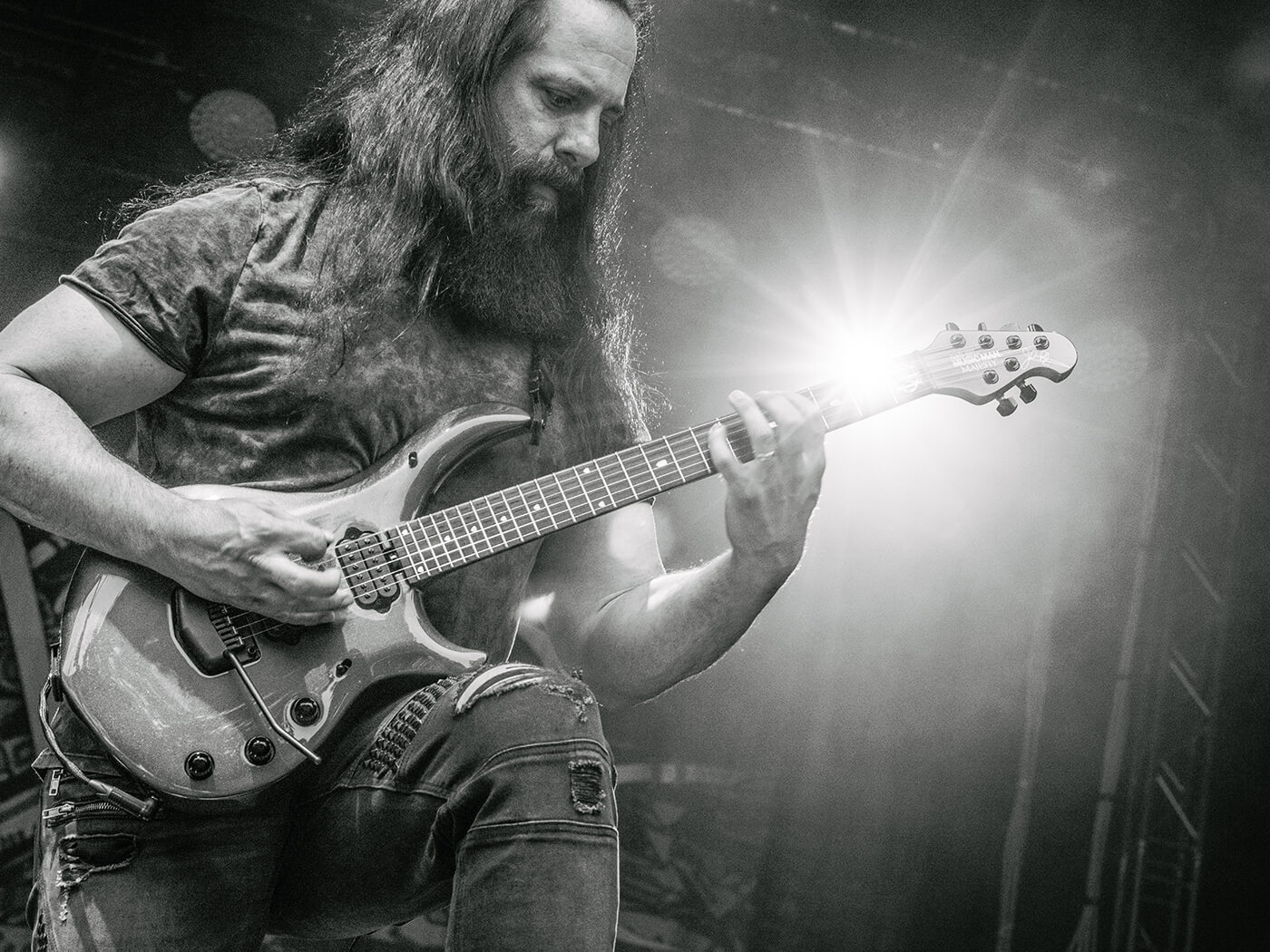
We hear that you’re developing an eight-string model?
“Yeah, we talked about it for a while with Ernie Ball Music Man and I’m hoping to get a prototype soon. That’ll be a fun new adventure for me, I know a lot of people have been playing eight-string forever and it’s nothing new, but it’s new for me so I’m looking forward to it.”
What plans have you got for that eighth string?
“I’ve told this story before. I think back to when Dream Theater were in the studio writing the Awake album at a studio in New York City. I was with Ibanez at the time and I got my first seven-string: it was a Steve Vai seven-string black with green pickups. I picked up that guitar and wrote The Mirror from Awake. That was my first experimentation with a seven string so I’m hoping to recreate that same experience with an eight-string!
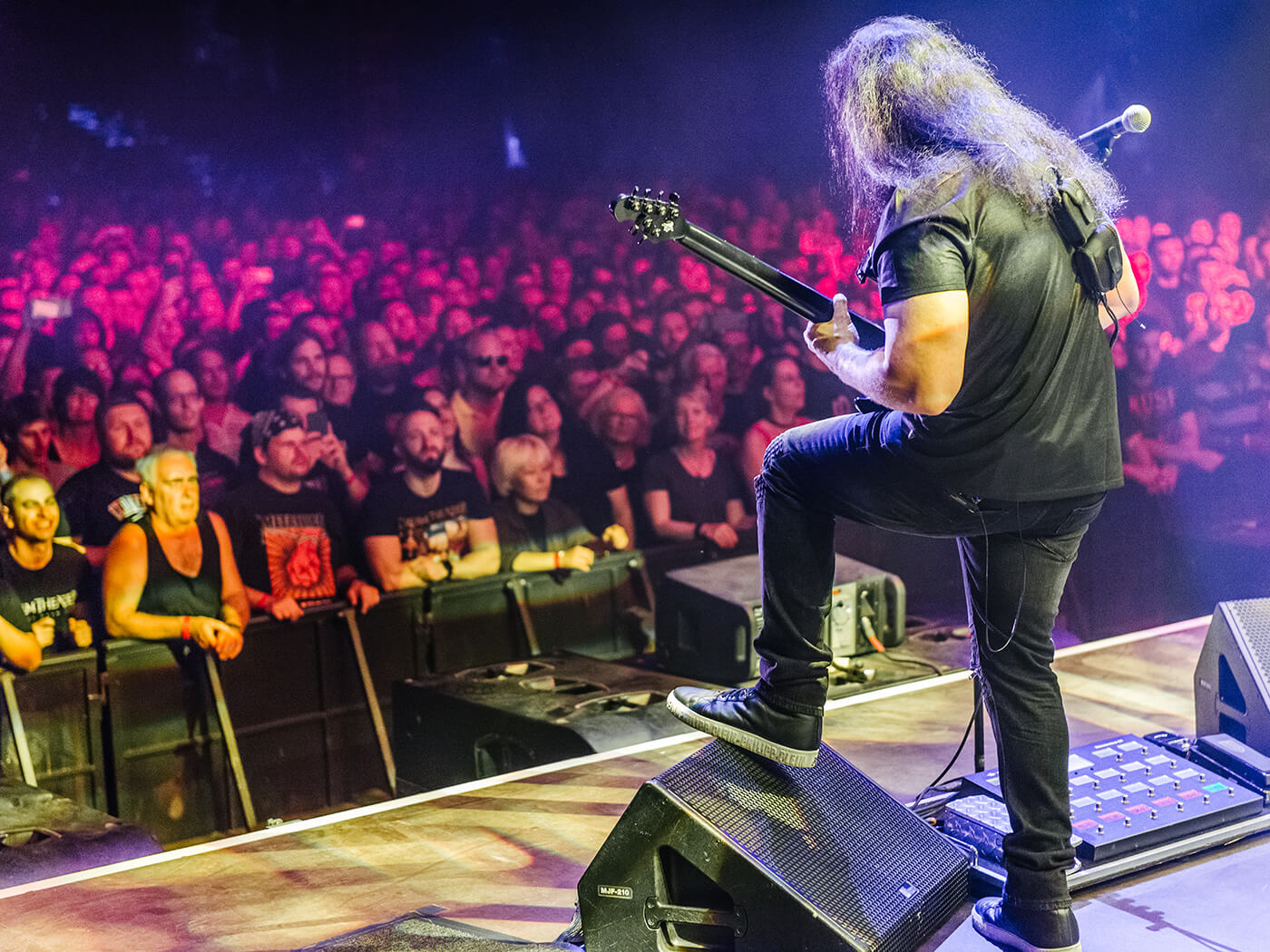
When we’re talking about the guitar rock instrumentals, what albums define the genre for you?
“For me, I go by the ones which were influential to me, though they’re not necessarily rock. Steve Morse and the Dregs, their whole catalogue has been ridiculously influential to me. Even his [Steve Morse] first solo album The Introduction – I learned everything off that record. Listening to the Dregs early on really turned around my whole thinking to playing guitar and wanting to pick every note, being precise and all that stuff. Al Di Meola’s Casino was another big one: some rock influence on that record but not really a big rock album. Alan Holdsworth Metal Fatigue. But yeah, these are albums that are more fusion than rock.”
Given the restrictions placed on live performances since the beginning of the year, do you fear for the long-term damage being done to the entertainment industry?
“Yeah there is a lot of damage to the entertainment industry; there’s no doubt about it. It’s not just my band and our crew, management, and everyone else associated with our concerts, but it’s every band on the planet. Since there’s no live performance, none of the crews can work, and none of the bands can work. Tour buses what are they doing? They’re sitting around. I’m a little nervous as far as people being able to survive this and those companies possibly going out of business.
“I don’t want to state the obvious but until we have a clearer picture then we’re not really sure when this is all going to go back to the way we used to do things. When we do go back to it what’s it going to look like and how are those changes going to influence bands and crews and organisations financially?”
It’s fair to say that touring is the main source of income for bands today?
“As record sales, CD sales everything has waned, touring has become really important. Bands make a lot of money on merchandise and there’s also the associated businesses. If you take a step back and you think about this, it’s not going to be like this forever. I live in New York and when 9/11 happened you couldn’t picture life returning ever back to normal: it was so just jarring in every way and eventually, even though things were changed forever, things do get back to normal. So I know it won’t be like this forever and we’ll get through it, but in the meantime it’s going to take a lot for everybody in this industry to mitigate these difficulties.”
Terminal Velocity is out now on Sound Mind Music/The Orchard.
